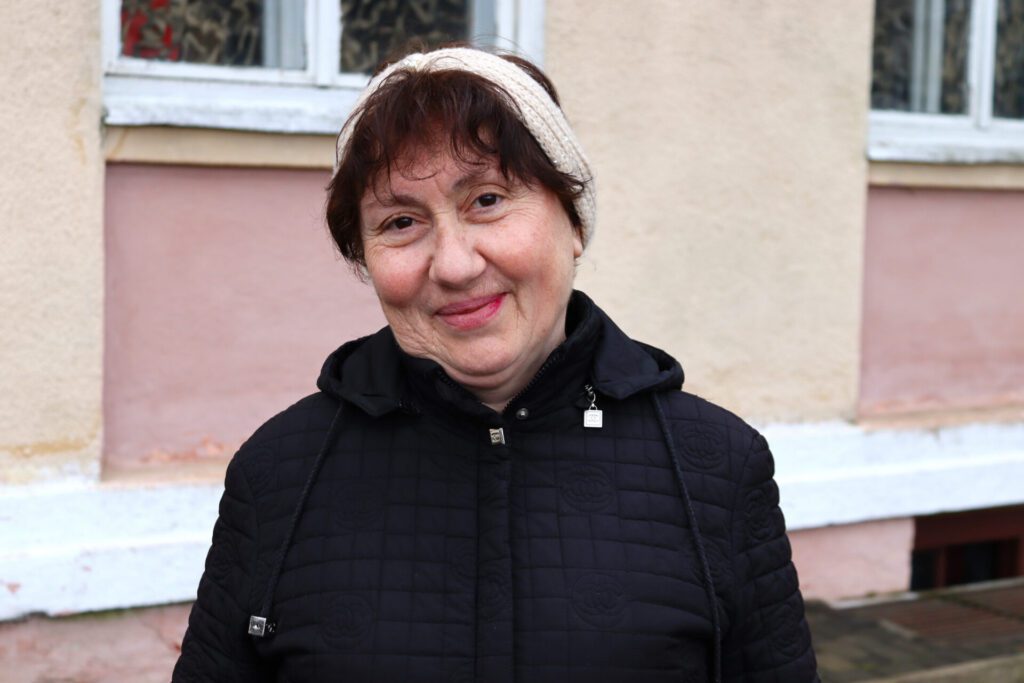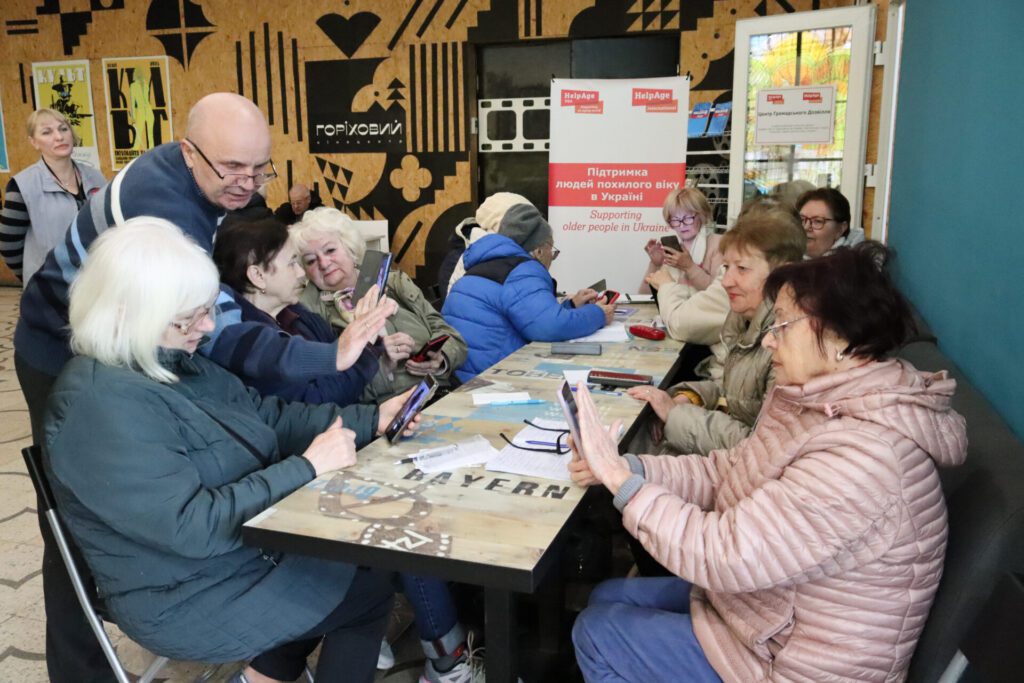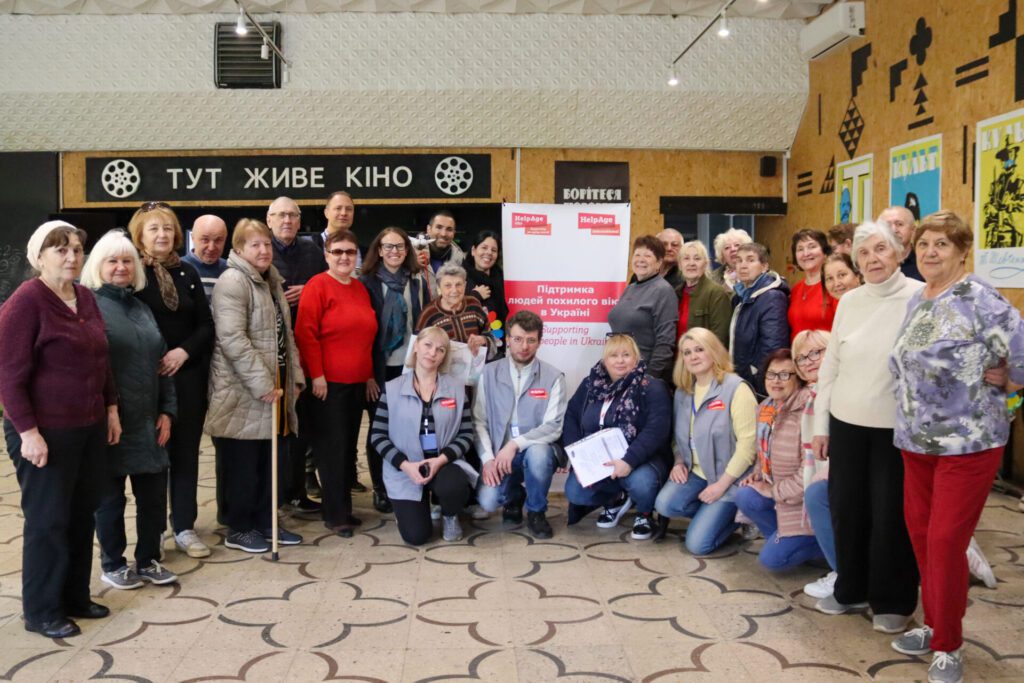Building Community in Displacement
Nina, aged 61, comes from the village of Nikolske in the Donetsk region of Ukraine, just 12 miles from Mariupol. In 2022, following the onset of Russia’s full-scale invasion, Nina endured nearly a month under occupation amidst relentless bombardment.
“In April 2022, I finally managed to leave. I made it to Sambir in Western Ukraine, where my daughter resides. My older sister, who is 67, stayed behind in the occupied territory,” Nina shares.
After a lengthy career spanning 38 years, Nina’s monthly pension amounts to 5,000 hryvnias ($126 US dollars), which is not enough to meet her medical needs.

“I suffer from arthritis and require arthroscopy on both knees, each costing the same as my entire monthly pension. I simply can’t afford it,” she explains.
Despite these challenges, Nina finds solace at the HelpAge Community Safe Space in Sambir, supported by HelpAge USA. At the Community Safe Space, older people and internally-displaced persons who have fled from other parts of Ukraine can come together, take classes, find community, access health services, and receive support.
“Communicating with others here is crucial. It makes you realize that you’re not alone. Everyone has their own story, their struggles. Sharing and supporting one another is vital for our well-being.”
Staying Connected

As part of the HelpAge USA-supported project, HelpAge’s Community Safe Spaces across the Lviv region launched and began offering IT training classes in April.
These sessions are designed to equip older people with the essential skills they need to navigate the digital world—from basic mobile phone usage, to safe internet practices, to accessing emergency information, to using online resources and social networks effectively. Social workers also guide them on installing and managing necessary applications on their devices.
A participant from Drohobych, 68-year-old Halyna, says: “Learning to use a smartphone and the internet has opened up new worlds for me. I can connect with friends, and access information. It’s comforting to know that even at this age and under these circumstances, we can stay connected.”
These IT classes not only enhance digital literacy among older people but also foster a sense of inclusion and community engagement, ensuring they remain active and connected in an increasingly digital society.
Empowered Through Knowledge and Skills
Last month, representatives from HelpAge USA and the Center for Disaster Philantrophy (CDP) visited Ukraine to gain a better understanding of older people’s situation in the country and the efforts to support them. One of the locations visited was a Community Safe Space in Lviv—a vivid illustration of HelpAge’s work in psychosocial support and skills-building for older Ukrainians.
Supported by HelpAge USA, the Community Safe Space in Lviv is one of four that operate under the project. About 200 displaced older people attend the community center, where they have fitness and art therapy, as well as various skills-building classes.

HelpAge’s Community Safe Spaces in Ukraine provide more than just a place for older people to receive information, acquire new skills, or engage in physical activities; they also give them somewhere they can speak to a psychologist for group and individual sessions. This represents a critical lifeline for older people who are often overlooked or forgotten.
“I don’t want to go abroad,” says 75-year-old Valentyna, one of the regulars of the Community Safe Space in Lviv. “Here, I feel closer to home. And now, I have made friends here. None of it would have been possible without the psychosocial support from HelpAge. I attend arts, fitness, and IT classes. It’s important that older people like me remain full-fledged members of society.”


